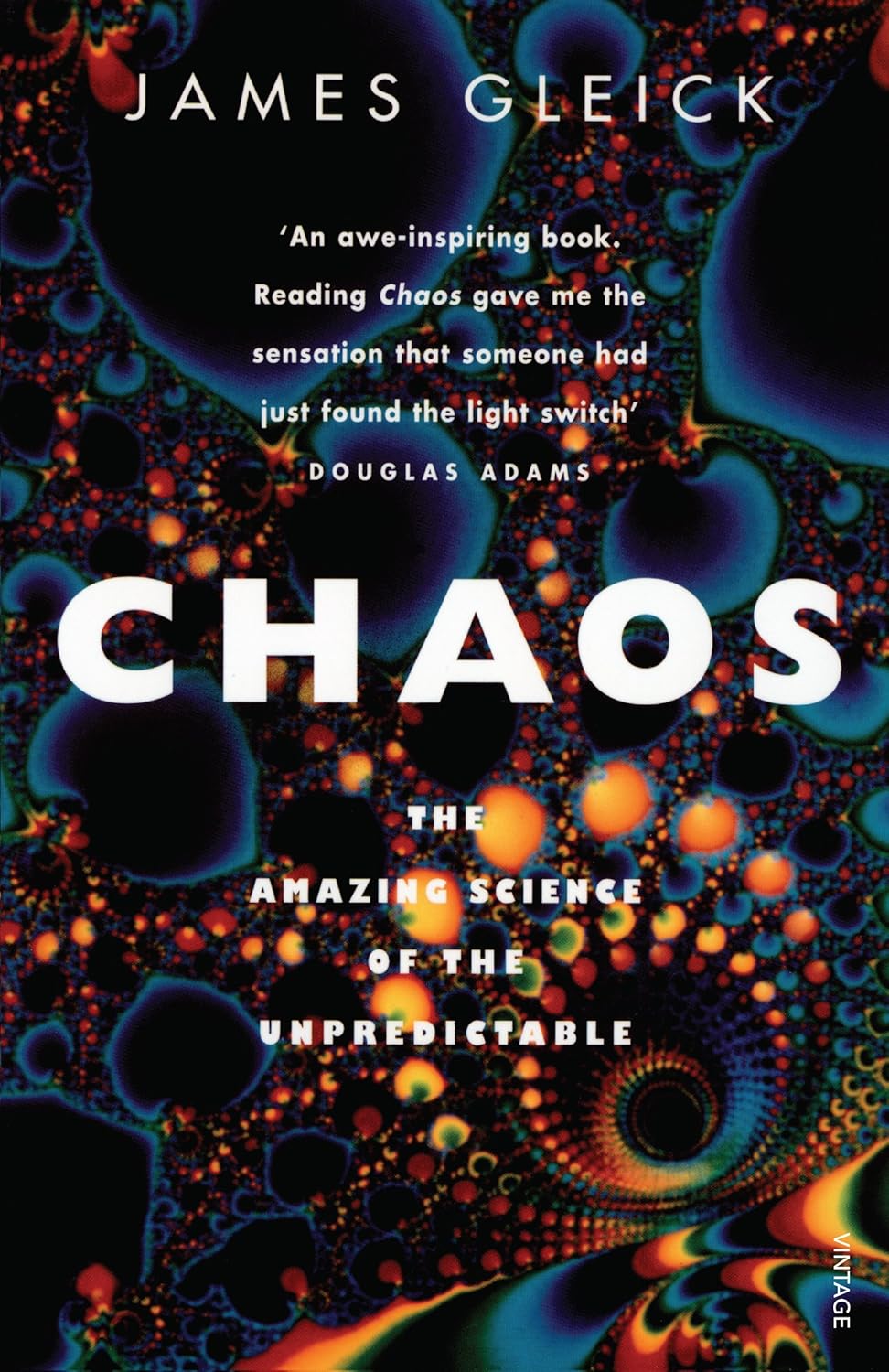Chaos
- Brand: Unbranded

Description
Every scientist, mathematician, philosopher, and person who cares about truth and reality needs to read this book and shift their thinking. Gleick gives an unorganized overview some fun mathematical concepts like fractals, strange attractors, and chaos theory. It came too early which is reflected in the imprecision and shallow quality of Gleick's discussion, which can be frustratingly confusing at times. It was a blockbuster bestseller at the time, and it's still well worth reading, a fascinating, enjoyable introduction to one of the most important scientific developments of our time--the birth of chaos theory. This strange results were of great interest to mathematicians, especially topologists, who study shapes.
In the end, this was definitely a very light and fun read and that is quit the reason it is so popular.It is as non-technical as its possible to be in subject of this nature and what mathematical explanations there are, are straight-forward enough to understand. But I found this book even more engaging for the narrative tale of a moment in history -- a virtual paradigm shift in mathematical thought -- that happened in our lifetimes. The author spent too much time in repeating the same terminology and concepts like 'strange attractors' and 'sensitive dependence on initial conditions' and not enough time making it tangible by using real examples that would have made it more meaningful. Most of science as we know it, as it was made in the first place, and as we learned about it in school is linear. Disclaimer: I took chaos mathematics at school so I was reasonably familiar with most presented concepts, which could have made it a little more boring.
Chaos: Making a New Science, was a finalist for both the National Book Award and the Pulitzer Prize in 1987, and was shortlisted for the Science Book Prize in 1989. Half of what draws me to physics, to theory, to Feynman and Fermat, to Wittgenstein and Weber, is the energy that boils beyond the theory.He shows you pictures and dances around the pools of chaos and clouds of complexity, but never actually puts the reader INTO the churning water or shoots the reader into energized, cumuliform heaps. Chaos, a book by James Gleick, first introduced the concept and early development of the chaos theory to the public. Chaos theory is a relatively new field in physics, and deals with simple and complex causes that react to one another. That is we have a problem, which was successfully translated into an equation where the outputs are obtained by multiplying the inputs by a certain factor, while keeping everything in the first degree. Players show up in one chapter, abruptly disappear in the next, and sometimes reappear years (chapters) later.
I am a bit biased in that I find this topic fascinating but ignoring that this book is very accessible, you don’t need to be qualified in maths to enjoy it! The other day when the radio announcer reported the length of the Florida coastline, I found myself wondering what length measuring stick was used.
For an elegant and comprehensive discussion of complexity theory, read Stephen Wolfram's ground-breaking work A NEW KIND OF SCIENCE published a decade ago and still making the news. From time to time, on rare occasions, I would form a binary event tree of life and would try to figure out the initial events that accumulated into current condition of life. The amazing pictures and illustrations and the quotes accompanying each chapter all add to the feeling of reading an art text book rather than a science book.
In fairness, there was a long gap where I put this book down after having read the first half, so I recognize that I lost the continuity of the narrative.
Robert Sapolsky said, "Chaos is the first book since Baby Beluga where I've gotten to the last page and immediately started reading it over again from the front: I've found this to be the most influential book in my thinking about science since college. His narrative is compelling, yes, the stories are interesting, sure, but he doesn't grab the central characters as well as a new journalist like John McPhee does. Truly, though, this book does a great job at explaining and giving us the unusual history of the science that brought pure mathematics out of the clouds and back into the real world, dealing with our observable reality. Whilst I confess to not getting very far with it, actually from the pages I read, I found some very interesting ideas about science and maths.
- Fruugo ID: 258392218-563234582
- EAN: 764486781913
-
Sold by: Fruugo
